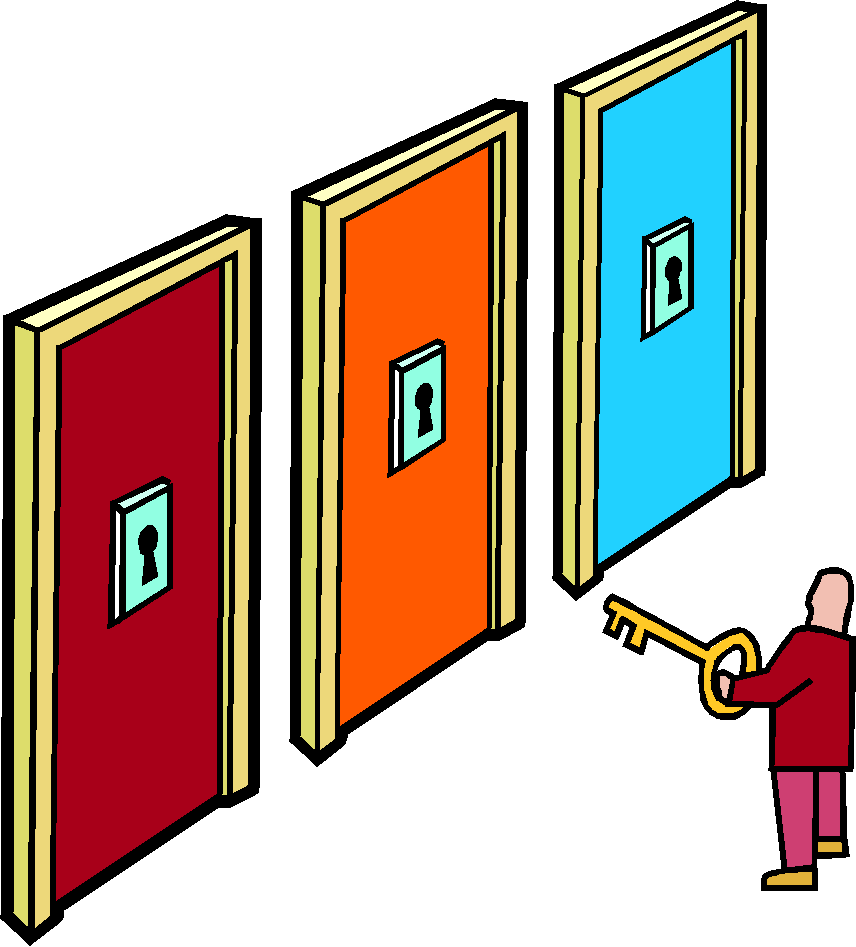Lesson 9: Role of Choice
Attention

Learning Outcomes
Upon completion of this lesson's material, students will be able to:
- Identify the importance of making choices in day to day living
- Identify the purposes that choice making have in behavior management
Teaching
In this lesson we examine the importance of making choices.
A key theory in Psychology is "Control Theory" or "Choice Theory" put forth by William Glasser.
Click here to review the WiKi on Glasser's Choice Theory
We can see by this article how engrained Choice is in Behavior Management...providing our clients, children, and ourselves (whoever is subject to our Behavior Plans) choices we provide them with the clear opportunity to pursue "survival, power, love, belonging, freedom, and fun".
Persons with Disability
It is a sad reality that individuals with disabilities have less opportunity for choice. Some of this opportunity is due to the disability itself (individuals in a wheelchair have restricted choice in their sport activities).
Sometimes, however, the restrictions in choice are imposed upon them by their environment...and sometimes this becomes such an expectation of the client that they buy into the idea that they have no choices as well...we call this "learned helplessness".
Persons with disability sometimes have difficulty making choices because:
- They are worried about making the "right" choice (for them, for those around them...)
- They have little history regarding personal decision making (they don't know how to go about making good decisions...skill deficit)
- They may lack the awareness that there are other choices out there (this is what most Windows users have when they don't realize that Macintosh computers are even better!!)
Bad Choices
We are often challenged by the fact that some of the people we encounter make "bad choices"...while the freedom of being able to act is often risky, it is difficult to not step in and try and prevent a tragedy when we can clearly see someone making these mistakes.
But, what is more important...reducing the risk and preventing failure, or providing the person with the opportunity to learn from their choices?
This might depend on the type of consequences that may be present for certain behaviors.
Choice Making in Behavior Management
By providing your client/self/other choices within the process of making a behavior plan, you gain some benefits:
- You can identify what the person likes
- Increased enjoyment in life
- Identify potential reinforcers
- Increase work and leisure activities
- Reduce behavior problems
Here is an example of a Behavior Plan that has more than one choice for each component. Depending on the developmental capacity of the person you are dealing with you can expand these choices as much as you want.
Antecendent |
Behavior |
Consequence |
In the morning After dinner Choice in When |
Brush teeth, wash face, and read story Wash dishes Choice in What |
Pick radio station to fall asleep to Pick favorite stuffed animal Pick story for tomorrow night Choice in Reward |
This assumes that both sets of behaviors have to get done in a day. You are providing choices as to when each gets done and various choices on reinforcers. So, one outcome could be as follows: A: In the morning, B: Wash Dishes, C: Pick Radio Station to fall asleep to Another one might be... A: After dinner, B: Wash Dishes, C: Pick favorite stuffed animal |
||
You can see that this plan provides a number of choices for behaviors and expected consequences depending on choices that are presented to the child...in this case possibly a child who has difficulty with the nighttime routine.
Assessment
Lesson 9 Discussion
Discuss why making choices is so important to you and the individuals you work with? What happens when we no longer can make choices? What situations would lead others to make choices for us?
Provide an example as to how we might emphasize CHOICE in a behavior plan.